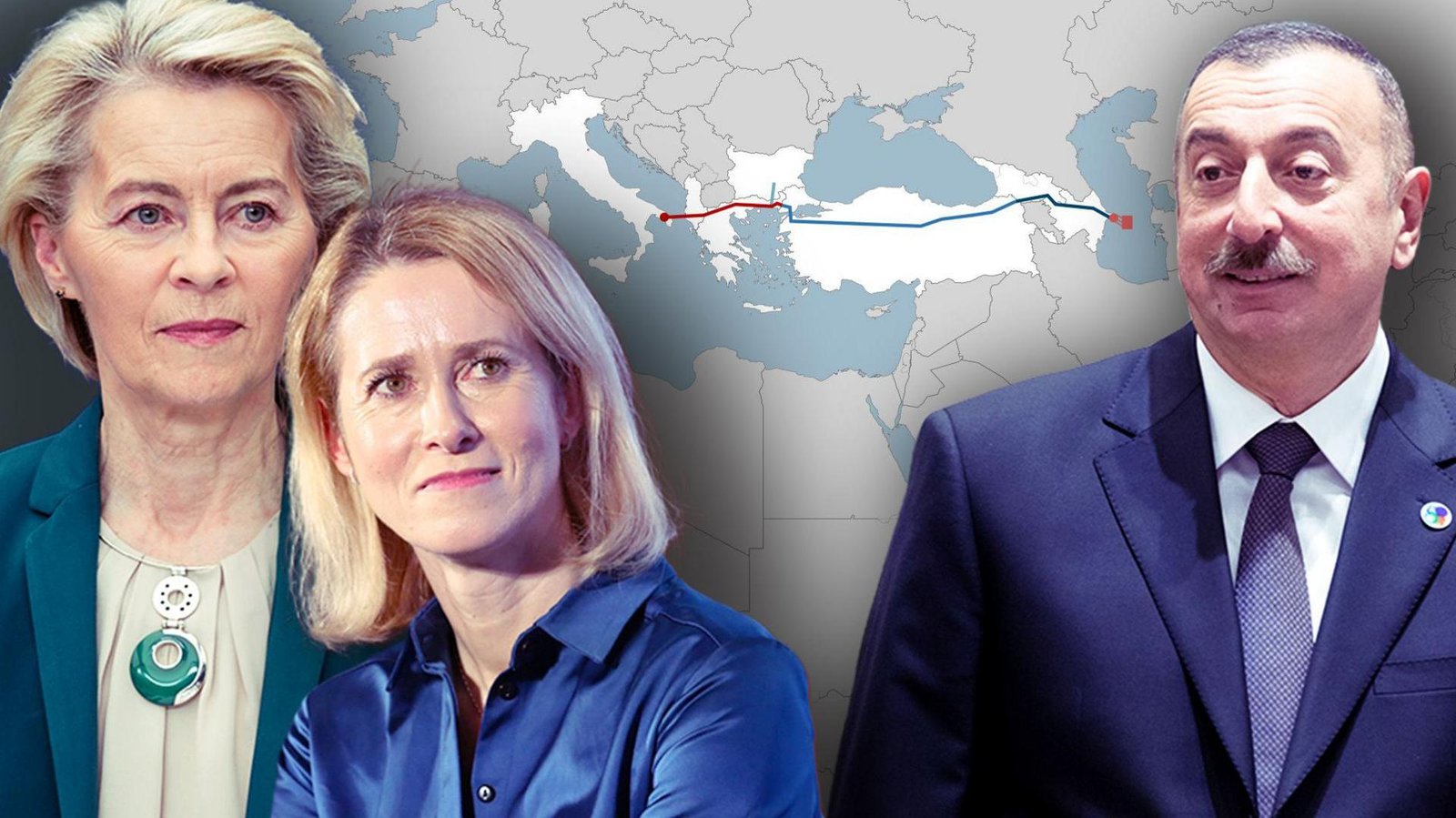To Ensure Energy Security Amid Ukraine War, EU Turns to Azerbaijani Gas — Critics Slam Silence on Human Rights Abuses
In an effort to reduce its dependency on Russian energy amid the ongoing war in Ukraine, the European Union (EU) has decided to import natural gas from Azerbaijan. However, the move has drawn sharp criticism over the EU’s perceived silence regarding human rights abuses in the country.
To Ensure Energy Security Amid Ukraine War, EU Turns to Azerbaijani Gas — Critics Slam Silence on Human Rights Abuses
To Ensure Energy Security Amid Ukraine War, EU Turns to Azerbaijani Gas — Critics Slam Silence on Human Rights Abuses
[Brussels, July 2025] — In an effort to reduce its dependency on Russian energy amid the ongoing war in Ukraine, the European Union (EU) has decided to import natural gas from Azerbaijan. However, the move has drawn sharp criticism over the EU’s perceived silence regarding human rights abuses in the country.
Last month, Azerbaijani authorities sentenced 30-year-old peace activist Bahruz Samadov to 15 years in prison on charges of treason. Samadov is a vocal critic of President Ilham Aliyev’s long-standing rule. His friends say the most disheartening aspect is not just the harsh verdict, but the EU’s muted response to it.
Critics argue that the EU’s core values on human rights are now being compromised for the sake of energy diplomacy. “The EU may continue to flirt with Baku,” one analyst commented, “but silence comes at a political price.”
Following Russia’s invasion of Ukraine in 2022, European Commission President Ursula von der Leyen had described Azerbaijan as a “key partner.” Around the same time, President Aliyev launched a military campaign to retake the Armenian-populated Nagorno-Karabakh region and secured a fifth term in office through widely criticized elections.
When EU foreign affairs representative Kaja Kallas visited Baku in April and spoke of the “immense potential” in bilateral relations, Azerbaijani opposition figures and rights activists reacted with shock and anger. At that time, at least 21 journalists were imprisoned in the country.
President Aliyev has justified the arrests, claiming they are necessary to protect the media from foreign influence. His government has also shut down the offices of the United Nations, the Red Cross, and the BBC.
Eldar Mamedov, a former advisor to the Socialist Group in the European Parliament, remarked, “Repression against dissidents, bloggers, and opposition voices has long been entrenched in Baku. But since Russia’s invasion of Ukraine, the EU has largely sidestepped human rights concerns.”
The EU has denied those allegations. A spokesperson told the BBC, “The [EU] remains concerned about the shrinking civic space in Azerbaijan and has called for the release of those arbitrarily detained.”
Currently, Azerbaijan supplies only about 4.3% of the EU’s total gas imports. However, for countries like Bulgaria, Greece, and Italy, Azerbaijani gas plays a more critical role—Bulgaria, for example, receives 40% of its gas from Baku.
Energy analyst Benjamin Godwin stated, “The EU wants to diversify its energy sources as much as possible to reduce dependence on Russia. While Azerbaijan isn’t a dominant supplier, it is seen as a viable alternative.”
One EU diplomat, speaking anonymously, admitted, “Right now, Europe lacks any real leverage over Azerbaijan.”
Nonetheless, the EU insists that its energy partnership with Azerbaijan does not compromise its stance on human rights.










